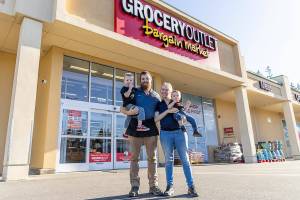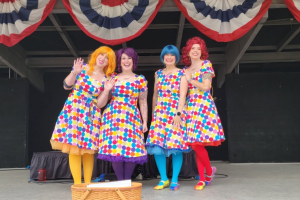Confronting the trauma and fallout of child abuse
Published 1:30 am Saturday, August 12, 2023
Some time ago, I read “Sliver of Sky: Confronting the trauma of sexual abuse,” by Barry Lopez, a well-known author, published in the January 2013 issue of Harpers. It’s available online. It’s well worth reading, but I must warn you, it’s painful.
Mr. Lopez (1945-2020) chronicles his childhood as a young boy growing up in California. His parents divorced, and soon after, a psychopath befriended his mother, masquerading as a physician in a hospital for substance abusers. The author describes the years of sexual abuse he endured by this authority figure. It’s an extraordinarily honest and frank description of his lived experience. Reading this account is a descent into Mr. Lopez’s hell. As parents, it’s reading about our worst nightmare. It’s not for the faint of heart.
But why read about something like this? Why would we want to subject ourselves to such fear and suffering? Because he is such an exceptional writer, because he wants us to understand this life experience, and because it gives us a greater insight into what can go wrong and what does go wrong in childhood.
“It’s difficult, even for therapists, to explain how this type of sexual violence can be perpetuated between two human beings for years without the victim successfully objecting. Why, people wonder, does the evidence for a child’s resistance in these circumstances seem so meager? I believe it’s because the child is too innocent to plan effectively, and because, from the very start, the child faces a labyrinth of confused allegiances. I was bewildered by what was happening. How could I explain to my mother what I was doing?” writes Lopez.
As a psychologist, I hear many stories of childhood abuse. Each one is different, and yet each one is similar. The adult survivor wonders how the child victim could have allowed such a horror to occur. The adult wonders why they could not have alerted a parent or a relative. Inevitably, they blame themselves. As an adult, it’s so difficult to remember how our minds operated as children. We have lost that awareness of our child mind and can only look through the lens that is currently available to us. As a writer, Mr. Lopez is superbly equipped to help us understand the child’s point of view.
Why is it so important for survivors to bear witness to this experience? Why do they want to confront their abuser? Why is it so important to have their experience validated? According to Mr. Lopez, it is to regain their human dignity. It is to reclaim their human spirit.
Barry Lopez finds himself through psychotherapy, where he can tell his story. He says, “Therapy’s success for me was not so much my coming to understand that I had learned as a child to tolerate acts of abuse. It was discovering a greater capacity within myself to empathize with another person’s nightmare. Most of the unresolved fear and anger I once held onto has now metamorphosed into compassion, an understanding of the predicaments everyone encounters, at some level, at some time, in their lives.”
Mr. Lopez moves from being a victim to finding his own capacity for compassion and love. This is the arc of more complete healing, and it’s incredibly challenging for survivors to arrive at this destination along their way to recovery.
During our parental life, when we are responsible for the care and feeding of our children, we walk through a valley of fear and hope. We don’t want our worries about our youngster’s safety to cause us to hover and squelch their young spirits. But we don’t want our hope to blind us so that we don’t see what’s in front of us.
Paul Schoenfeld is a clinical psychologist at The Everett Clinic. His Family Talk blog can be found at www. everettclinic.com/ healthwellness-library.html.




